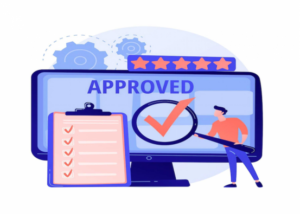Struggling to get a loan due to bad credit? Low credit score loans might be the solution you need. In this guide, we’ll break down what these loans are, how they work, their advantages and drawbacks, and how you can improve your chances of approval. Plus, discover smart alternatives to avoid high-interest debt. Read on to make the best financial decision for your situation!
A low credit score can make borrowing money challenging, but it doesn’t mean you’re out of options. Low credit score loans are designed to help individuals with poor or limited credit histories access financing when traditional lenders turn them down. Understanding how these loans work can help you make informed financial decisions and avoid predatory lending practices.
What Are Low Credit Score Loans?
Low credit score loans are financial products tailored for borrowers with less-than-ideal credit histories. To determine eligibility, lenders offering these loans assess other factors, such as income, employment history, and overall financial stability. These loans typically come with higher interest rates and stricter terms to offset the lender’s risk.
Types of Low Credit Score Loans
- Personal Loans– Unsecured loans that don’t require collateral but have higher interest rates.
- Secured Loans– Require collateral, such as a car or home, which can lower interest rates.
- Payday Loans– Short-term, high-interest loans meant for emergency expenses.
- Installment Loans– Repaid over a set period with fixed monthly payments.
- Credit Builder Loans– Designed to help improve your credit score by making consistent payments.
How Do Low Credit Score Loans Work?
When applying for a low credit score loan, lenders evaluate various factors beyond just your credit score. They consider your income, job stability, and debt-to-income ratio. While these loans offer financial relief, they often come with higher interest rates and fees due to the increased risk to lenders.
Key Features to Expect
- Higher Interest Rates – Lenders charge more to compensate for the perceived risk.
- Shorter Repayment Terms – Many low credit score loans must be repaid within a few months to a few years.
- Strict Eligibility Criteria – Proof of income, employment, and sometimes collateral may be required.
- Impact on Credit Score – Responsible repayment can improve your credit score.
Pros and Cons of Low Credit Score Loans
Pros
- Provides access to financing when traditional lenders refuse.
- Helps build or rebuild credit with consistent repayments.
- Some options, like secured loans, offer lower interest rates.
- It can be used for emergencies, medical bills, or debt consolidation.
Cons
- Higher interest rates can make repayment expensive.
- Some loans come with hidden fees and prepayment penalties.
- Borrowers may face aggressive collection practices if payments are missed.
- Risk of falling into a debt cycle if loans are repeatedly taken.
How to Improve Your Chances of Approval
1. Check Your Credit Report
Obtain a free copy of your credit report to assess your situation and correct any errors that may be lowering your score.
2. Compare Lenders
Not all lenders have the same criteria. Research multiple options to find the best rates and terms.
3. Offer Collateral
A secured loan using an asset like your car or savings account may help you qualify for better terms.
4. Get a Co-Signer
A co-signer with good credit can improve your chances of approval and help secure lower interest rates.
5. Show Proof of Income
Stable employment and a steady income demonstrate your ability to repay the loan, making you a less risky borrower.
Alternatives to Low Credit Score Loans
If you don’t qualify for a loan or want to avoid high interest rates, consider these alternatives:
- Credit Unions – Offer lower interest rates and more flexible terms than traditional banks.
- Family & Friends – Borrowing from loved ones can be a cost-effective alternative but should be handled responsibly.
- Side Hustles – Generating extra income through freelancing, selling goods, or gig work can help cover expenses without debt.
- Budgeting & Saving – Cutting non-essential expenses and saving for future needs can reduce reliance on loans.
Conclusion
Low credit score loans provide financial relief when traditional loans aren’t an option but come with risks. Borrowers must understand loan terms, compare options, and consider alternatives before deciding. Responsible borrowing and timely repayments can help rebuild credit and improve future financial opportunities.






Be First to Comment